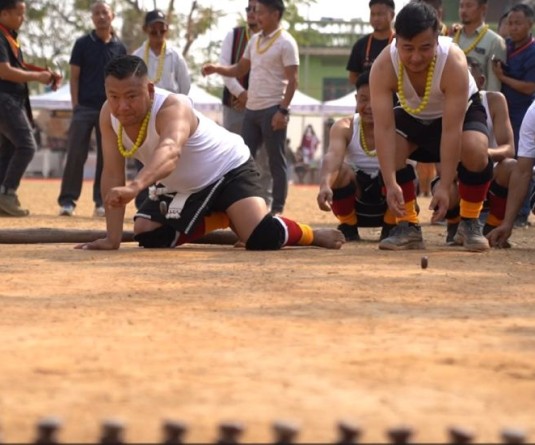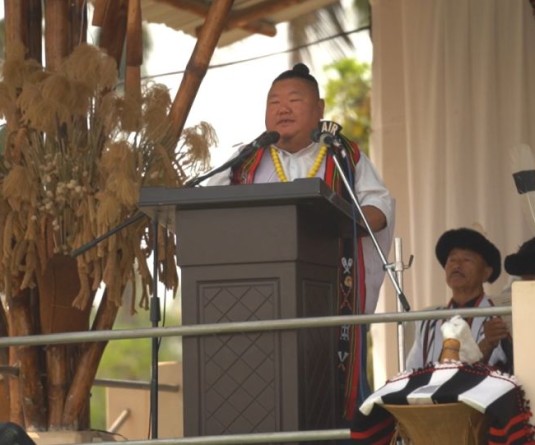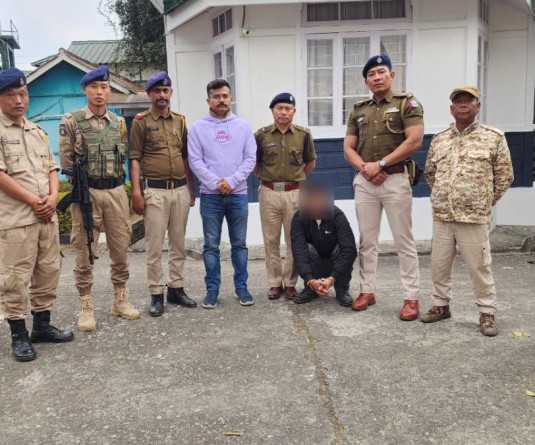
Our Correspondent
Kohima | August 29
Social Audit/Public Hearing under Right to information Act was held Saturday at Kohima, organized by Angami Students’ Union (ASU) and Youth Net, funded by Government of Nagaland. A forerunner of the RTI movement in India and Magsaysay Awardee, Arvind Kejriwal of Parivatan, graced the day long programme. The chair of panel included Dr. Vinito Chishi, State Coordinator Nagaland Legislative Assembly forum for HIV, Mr. Achumbemo Kikon, former president NSF, Kzhrielevi Chusi, President, Angami Youth Organization and Neithonuo Sothu, legal advisor, Angami women organization. Member, Nagaland Information Commission, Dr. Kuhoi Zhimo attended the programme as Special Observer.
The co-operation of the Naga Hospital Authority Kohima, (NHAK) was evident by the presence the Managing Director, Medical Superintendent and Doctor in charge. It is reported to be the fifth public hearing for the Youth Net on four departments, Health & Family Welfare, Education, Power and Roads Bridges. ASU and Youth Net had checked and verified on documents related to NHAK two days earlier before the public hearing.
It was informed that three applications were submitted to NHAK, on General Management/Administration, Intensive Care Unit and Save a Life Pharmacy.
Youth Net and ASU on cross verification through social auditing and public hearing discovered that after NHAK has been given autonomous status by the State Government, district funds for the hospital had been stopped even though it continued to play the dual function of a District Hospital as well. The Youth Net and ASU, while checking the information received from the ICU department, wanted to know why the ICU at NHAK was charging more than or at par with the charges in the private run Hospitals, given that the set up had been sponsored fully by the NEC. Deputy Director, ICU, Dr Sentimeren Aonok responded with a statement that “it is a self sustaining unit, which generates income to pay its own staffs and for its own maintenance”.
The charges are fixed by the governing authority and it was also learnt that the patients at the ICU are provided with medicine at 50% to 100% discount. It was also learnt that good number of patients leave without clearing dues after signing a document with a guarantor and surprisingly, the patients on cross verification admitted in some cases. On the query on the reason for pending bills that amounted to 38 lakhs and free services of 10 lakhs, NAHK clarified that Legal Action is being planned against the defaulters. Doubtful discrepancies were also detected in the Save a Life Pharmacy. According to Youth Net and ASU, it was learnt that starting from March 2009 - March 2010 a sale of Rs.1.88 crore was made, out of which a profit of 27 lakhs was incurred.
Responding to the RTI Application on the profit margin earned from the medicines and surgical items, the concerned authority mentioned 16-18% profit for medicine sale proceeds and 20-25% for surgical items.
On consultation with experts, medicine profit percentage is found to be normal; however, experts differed with the 20-25% for surgical items. According to the pharmacist, for a huge institution like NHAK, Save a Life Pharmacy it cannot be less than 100% profit.
It was also learned that surgical items constitutes about 15% of the total sale proceeds daily. Therefore the overall profit percentage should not be less than 30%. As a result the profit shown as 27 lakhs is not more than half the actual profit.
The Officer In Charge informed the gathering that 2% discount is provided for all the general patients, 5-10% discount for all the cancer patients, which in the case of very expensive cancer medicines, the discount is provided even upto 32%. Towards this effect, Dr. Vinito Chishi opined that such discounts are needed for serving the suffering patients.
He further said that a proper uniform system should be in place so that there is no communication gap.
The general authority was queried on whether there is uniform yardstick applied to the poor patients/Below poverty line (BPL) on how to get free medical services, it was found that there is no such strict criteria, rather the management when reports come from the Doctors on the economic conditions of the patients they grant such free facility.
On proper cross verification, it was revealed that many Above Poverty Line (APL) patients also avail the same free service by putting pressure on the management.
Dr. Vinito, stressed on the need to be strict and to avoid the so called ‘VIP/VVIP’s unnecessary intervention’ especially when it comes to availing discounts and payment. The President AYO without mincing word said; “BPL should be BPL and Above Poverty Line should be APL” and felt that this trend should be stopped.
One very interesting aspect was discussed on the utilization of the NEC Fund of 4.55 crores. The NHA had diverted about 1.9 crores for other infrastructural component instead of buying the machineries. The reason was under the NEC fund, component for building was not there, whereas NHA was in dire need for rooms for the equipments, therefore it was diverted. However no written letter permission was obtained for the same, but only verbal assurance was made. The Managing Director clarified that there was no component in the NEC Fund for construction; however, he had asked the joint team of YouthNet and ASU to apply RTI application to the NEC on the matter.
Arvind Kejriwal summed up the session with suggestions that upholding the section of RTI Act, NHA can furnish such information in their website, so that through pro-active disclosure of information, the people of Nagaland are informed on Pending Bills, Minutes of Meetings of all the Governing Board sittings, Monthly receipt and expenditure statement, Procurement and disbursal of medicines and surgical instruments etc.
The meeting was attended by hundreds of people. People whom this correspondent talked to felt that such exercise in a democratic set up with the cooperation of the departments/public sectors should be conducted from time to time in the interest of all, especially the public who are the ‘main but ignorant stakeholders of the society’.






